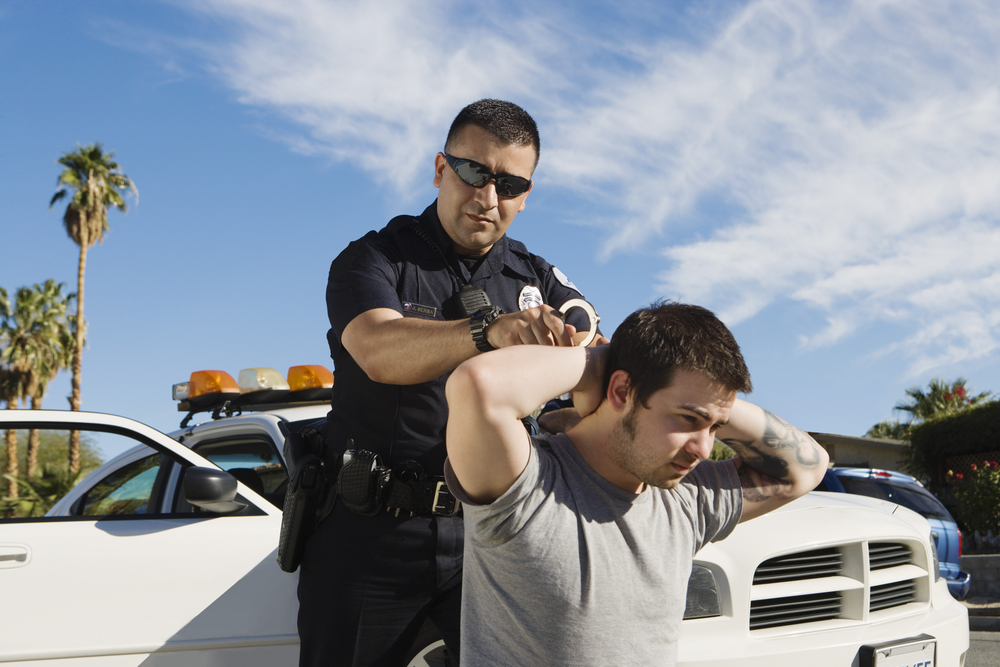No matter what you’re being arrested for, it’s important to pay attention to what’s going on. Depending on what the officer does or doesn’t do, your rights may have been violated. A qualified criminal defense attorney might be able to get enough information to come up with a defense. In some cases, your charges may be reduced or even dropped.

Proper Arrest Procedures in the State of Texas
In many types of criminal cases, the actions of the arresting officer or any other officers involved in the process of your detainment can determine the outcome of your case. There are certain procedures that the police are legally required to follow during the arrest of a suspect to make sure there is justice for everyone (including yourself). You can’t be mistreated, and you can’t have your rights withheld or violated. You’re not required to let the police search you, your belongings, your house, or your car if they don’t have a search warrant. They can search you if they suspect that you have something on your person or in your immediate vicinity that could cause them harm. They have no right to search you or your property without your permission.
You’re also not required to answer any of their questions or say anything while you’re being arrested. You do, however, need to tell the officer that you plan to stay silent. If the officer tries to get you to talk through the use of force or any other means, this would be considered coercion and is a violation of your “right to remain silent.”
You have the right to legal counsel, whether it’s on the scene or at the police station, so you should ask to speak to one. If you don’t have one, it must be provided by the government. You shouldn’t be forced to answer any questions without this person present. You’re also allowed to make one local phone call, which can be made to anyone. If happens to be your lawyer, the police aren’t allowed to listen in on that conversation.
The police aren’t allowed to use excessive force when they arrest you. They can, however, use “all reasonable and necessary force” to overcome any kind of resistance you make their arrest. This definition does seem subjective. But, as long as you stay calm and aren’t resisting or obstructing the officers, they have no right to use force. Even if you’re resisting arrest, it can’t be excessive relative to your level of resistance. If you’re unarmed and only argued with the officer without posing any real danger, this person is not allowed to get violent with you. This includes any of the following actions:
- Kicking
- Punching
- Suffocating
If any of these actions happened during or shortly after your arrest, you need to tell your attorney as soon as possible so he or she can use this information to come up with a defense. Depending on the circumstances, your case might even be thrown out without a trial.
Your Rights with Regard to DNA Samples and Breathalyzer Tests
You have the right to refuse any test that that the police wants to give you, but the addition of “no-refusal weekends” and “zero-tolerance policies” have made this issue more complicated. It’s always a good idea to refuse a blood test, and you should make a cop get a search warrant if the cop wants to take your blood. Once the officer has it, you must make it clear that you’re cooperating under duress. If you don’t cooperate with the blood test, several police officers will hold you down while it’s taken by force.
It’s easier to fight a positive breath test than it is to fight a positive blood test. So if you’re arrested over the weekend, during a holiday, or at a time when it’s unlikely for a judge to sign a search warrant, it’s better to take the breath test. There are, however, some circumstances (such as if you’re arrested for a felony DWI, intoxication assault, or intoxication manslaughter) when the police can take your blood without a search warrant. But, because of a recent decision made by the US Supreme Court, most police officers should try to get a search warrant before administering a blood test.
What Can Happen if You Weren’t Read Your Miranda Rights During an Arrest
If you believe that the police didn’t inform you of your Miranda Rights in Texas before they interrogated you, you should contact a criminal defense lawyer in Corpus Christi as soon as possible. If an attorney can prove that you weren’t “mirandized” when you should have been, anything you said while you were in custody won’t be admissible in court. Your words can’t be used to build a case against you, and the interrogation has been legally suppressed.
If you have been arrested and believe that your Miranda Rights have been violated, be sure to get in touch with Gale Law Group.
